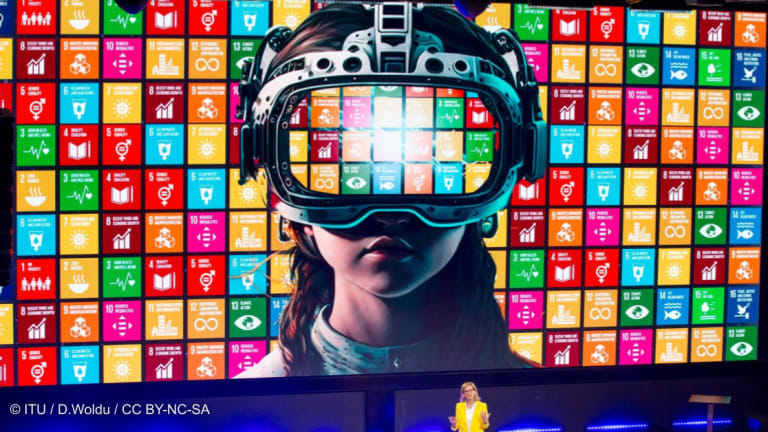
Next week marks the 10th anniversary of the adoption of the Convention on the Rights of Persons with Disabilities by the United Nations General Assembly. The groundbreaking convention set basic norms, frameworks for measuring progress, and reporting requirements for the political, social, and economic inclusion of the 1 billion people with disabilities worldwide — and has now been ratified by 170 countries.
The past decade has seen real achievements in disability inclusion, with the incorporation of disability rights into the Sustainable Development Goals and other international accords, the creation of national action plans for disability inclusion, the adoption of dedicated funding streams by numerous donors, and a heightened awareness of the importance of disability inclusion.
But even as we celebrate this progress, we are also reminded that for most people with disabilities around the world, the reality of exclusion from access to health care, education, housing, transport, and employment is unacceptable in the era of the SDGs and the “universal call for action.” The correlation between disability and extreme poverty is well-documented, with people with disabilities often comprising the poorest populations in the poorest regions. People with disabilities are particularly vulnerable in situations when social order breaks down, and are more susceptible to exploitation and violence in conflicts, natural disasters, and population displacement.
Moreover, our failure to draw on the skills and knowledge of this community as planners and implementers of development and humanitarian projects is a tremendous waste of talent and perpetuates the cycle of inequality and exclusion.
Simply stated, we are failing as a global community to provide the necessary resources, attention and leadership to ensure that this vital and talented population is empowered to better their own lives and their societies.
We are seven civil society organizations engaged in global development and humanitarian action. We have each received the InterAction Disability Inclusion award since 2009, an award that recognizes NGOs that are making strides toward greater disability inclusion in programs and management, and expanding leadership opportunities for this population. Along with our colleagues who chair InterAction’s disability working group, we know that disability inclusion is essential to achieving the SDGs and our global commitment to end extreme poverty within the next two decades.
Together, we have prepared a “global call to action for disability inclusion.” Reflecting on our own experiences, we call on the international development community to reaffirm their commitment to disability inclusion. We call on all governments, international organizations, civil society groups, academic institutions, and other actors to:
• Prepare organizationwide action plans and policy documents on disability inclusion, linked to implementation structures that mandate clear provisions for monitoring and evaluation, and drawing on the insights and expertise of disabled persons organizations.
• Require specific references to disability inclusion in all projects and solicitations, ensuring sufficient resources on the scale of 3-5 percent for accommodation, accessible facilities, awareness raising, institution strengthening, research and data collection, and other needs.
• Create national and multilateral funds dedicated to supporting and strengthening local civil society institutions and host governments, recognizing that they are best placed to address issues of disability rights and inclusion in their national contexts.
• Embed disability advisors and experts broadly within their institutions and ensure that these focal points they have sufficient authority to influence decisions of the full organization, as well as independent budgets.
• Ensure that all funding and implementing institutions have adopted steps such that people with disabilities comprise at least 10 percent of their work force, backed by programs to mentor people with disabilities to be competitive candidates for positions; to eliminate bias in hiring, employment, promotion, and separation; to create a culture of inclusion where disclosure of disabilities leads to support and accommodation; and to provide reasonable accommodation practices.
• Place particular attention to the protection and empowerment of people with disabilities who also face marginalization based on gender, sexual orientation, displacement status, race, religion, and age.
In a world of limited resources, multiple challenges, and seemingly endless priorities, some might ask whether we can afford to focus this degree of attention on including people with disabilities as planners, implementers and beneficiaries of all our programs.
We look at it differently. We ask: In a world that needs to benefit from the full talents of our diverse populations to eliminate poverty, achieve social justice, and end conflict, can we afford not to?
Join the Devex community and access more in-depth analysis, breaking news and business advice — and a host of other services — on international development, humanitarian aid and global health.




